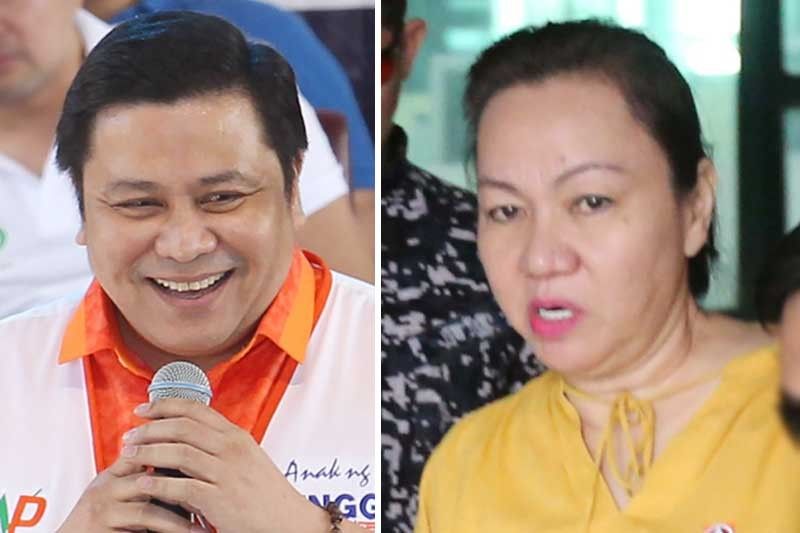Jinggoy, Napoles plunder cases to proceed

MANILA, Philippines — Former senator Jinggoy Estrada and detained businesswoman Janet Lim-Napoles would have to proceed with the presentation of their defense after the Sandiganbayan denied their bids to dismiss their plunder cases in connection with the multibillion-peso pork barrel scam.
In a 38-page resolution promulgated on June 13 and released to media yesterday, the anti-graft court’s Fifth Division denied the respective demurrers to evidence filed by Estrada and Napoles, which sought their outright acquittal without presenting their defense.
In their demurrer, Estrada and Napoles prayed for the dismissal of the charges, saying the prosecutors of the Office of the Ombudsman failed to present a single document or witness to prove that either of them was the mastermind or “main plunderer” in the case.
Estrada said no witness presented by the prosecution ever testified witnessing first hand that he transacted with Napoles concerning his Priority Development Assistance Fund during his term as senator from 2004 to 2012 or that he received kickbacks or commissions from the supposed allocation of his PDAF to the the businesswoman’s bogus foundations.
In its ruling, the Fifth Division said on the contrary, “the testimonies of the witnesses, coupled with the documentary evidence presented by the prosecution, fill the intricacies of the PDAF scheme employed by the defendants in conspiracy with one another.”
Sandiganbayan magistrates said the testimonies of the whistle-blowers, including that of star witness Benhur Luy, “show to the court every step or layer of the crime charged.”
Among the prosecution’s evidence cited by the court was the project listing from Estrada’s office identifying the Napoles-linked non-governent organizations Masaganang Ani Para sa Magsasaka Foundation Inc. and Social Development Program for Farmers Foundation Inc. as partners in the implementation of his supposed livelihood projects.
The court said the project listing was also attached to Estrada’s endorsement letters submitted to the Senate and eventually to the Department of Budget and Management authorizing the release of his PDAF to the foundations.
“There is sufficient evidence to establish the following: the first payment of commissions happened after the signing of the project listing. The second tranche of payment was given after the release of the SARO. All payments were given to Estrada through his representatives until he personally transacted with Napoles in 2010 to 2012,” the ruling read.
The court said the prosecution’s evidence showed that the last stage of the PDAF scheme involved the submission of fake liquidation documents for purposes of audit by the Commission on Audit, where fictitious or forged list of beneficiaries were being manufactured.
- Latest
- Trending


























